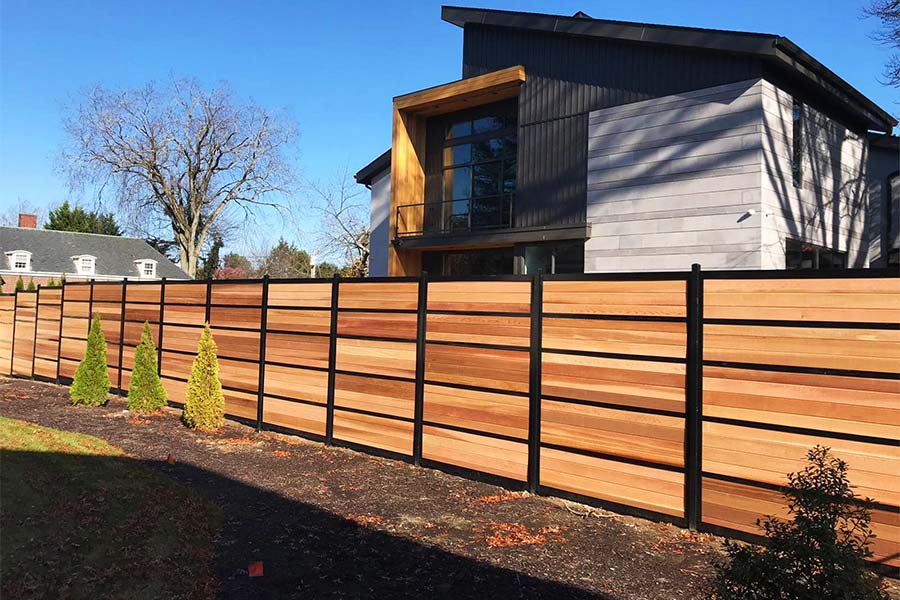Featured

When it comes to picking the best fencing material for toughness, functioned iron stands out as one of the most dependable and resilient choices readily available. Let's take a closer look at functioned iron fence and exactly how it piles up versus alternatives like aluminum, plastic, and timber.
Strength and Longevity of Wrought Iron Secure Fencing. Wrought iron is a solid, durable product that's designed to last for years, if not longer. Unlike many various other fence options, functioned iron can endure extreme ecological problems, consisting of severe warm, hefty rainfall, and even solid winds. This makes it an exceptional choice for buildings found in locations with unpredictable weather condition. Since it is a steel, functioned iron is not susceptible to the damage that timber fencings often experience, such as decaying, warping, or insect infestations.
Durability: Wrought iron fencings are exceptionally hard and can withstand influences and various other forms of physical tension that could harm other materials. When correctly preserved, they can last for 50 years or even more, making them an investment that will certainly give lasting value.
Wrought Iron vs. Timber Fencing. Wooden fences, while typical and visually pleasing, commonly call for even more maintenance and have a much shorter lifespan contrasted to functioned iron. Timber is vulnerable to rot, termites, and weathering with time, all of which can compromise its structural honesty. Furthermore, wood fencings may require to be replaced or fixed every 10 to twenty years, depending on the climate and the sort of timber used.
Maintenance: While timber fencings require to be routinely treated with stains, sealers, or paints to keep their appearance and longevity, wrought iron fencings typically require much less upkeep. They might need occasional cleansing or painting to avoid rust, especially in damp or coastal locations, yet they will not experience the very same sorts of destruction as wood.
Long life: While a well-maintained wooden fence might last 20 to thirty years, wrought iron can surpass that lifespan by numerous years, making it a more resilient selection in the lengthy run.
Wrought Iron vs. Plastic Fencing. Plastic secure fencing has become a popular option to timber because of its reduced upkeep and resistance to the aspects. Unlike timber, vinyl does not rot or warp, and it does not require to be repainted or treated. However, vinyl can end up being weak gradually, particularly in areas with harsh winter seasons or severe UV exposure. It may damage or break under pressure, such as from a severe storm or a hefty effect.
Longevity: While vinyl is immune and relatively sturdy to rot and fading, it still can not match the long-term stamina and strength of wrought iron. A vinyl fence might last around 20 to thirty years, relying on environmental variables, but it does not have the architectural honesty that wrought iron gives.
Maintenance: Vinyl requires very little upkeep compared to timber, but it can still discolor with time, specifically in areas with extreme sunlight direct exposure. Wrought iron might need periodic corrosion prevention treatments but typically calls for less interventions than plastic.
Wrought Iron vs. Light Weight Aluminum Secure Fencing. Aluminum is one more metal choice to functioned iron, and while it shares several of the toughness qualities of functioned iron, it is generally much less strong and strong. Light weight aluminum is much more lightweight and resistant to corrosion and deterioration, making it a popular choice for low-maintenance fencing. However, it's not as strong as functioned iron and may be extra susceptible to nicking or bending under stress.

Resilience: Wrought iron is considerably stronger and a lot more resilient than aluminum. While aluminum fences can last for a number of decades, they might not hold up also in high-impact or high-traffic locations. In contrast, wrought iron is a lot more immune to physical damage and can better hold up against pressure and force.
Upkeep: Both wrought iron and aluminum fencings require some maintenance, mostly to avoid rust. Light weight aluminum is less likely to rust than functioned iron, making it a more low-maintenance option in locations with high moisture or seaside salt exposure.
Last Ideas: Wrought Iron's Sturdiness Advantage. Wrought iron stands apart as one of one of the most long lasting fencing materials readily available, surpassing wood, plastic, and aluminum in terms of toughness, durability, and general efficiency. While it does require periodic upkeep, particularly to avoid corrosion, its capability to withstand extreme climate condition, physical stress, and the test of time makes it an exceptional investment for home owners and services looking for a long-lasting, protected fence remedy.
For those who focus on toughness and longevity above all else, wrought iron is an unequalled selection. Whether you're safeguarding a house, boosting the appearance of your backyard, or supplying protection for a business site, wrought iron fencing will certainly give decades of toughness and visual charm that couple of other products can match.
Latest Posts
Learn About Brake Repair & More: Full Repair Options from Montclare Auto Repair
Published May 28, 25
1 min read
Find Out Cut Costs on Car Maintenance with Montclare Auto Repair’s Special Deals
Published May 26, 25
1 min read
Identifying When Your Car Needs Skilled Auto Repair at Montclare Auto Repair
Published May 26, 25
1 min read
More
Latest Posts
Learn About Brake Repair & More: Full Repair Options from Montclare Auto Repair
Published May 28, 25
1 min read
Find Out Cut Costs on Car Maintenance with Montclare Auto Repair’s Special Deals
Published May 26, 25
1 min read
Identifying When Your Car Needs Skilled Auto Repair at Montclare Auto Repair
Published May 26, 25
1 min read